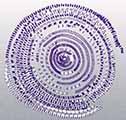Komparatīvistikas almanahs
Journal of Comparative Studies
Publishing House: Daugavpils Universitātes Akadēmiskais apgāds “Saule”
Subject(s): History, Anthropology, Social Sciences, Language studies, Language and Literature Studies, Literary Texts, Cultural history, Customs / Folklore, Applied Linguistics, Studies of Literature, Communication studies, Sociology, Sociolinguistics, Comparative Study of Literature, Latvian Literature, Other Language Literature, Cultural Anthropology / Ethnology, Culture and social structure , Family and social welfare, Ethnic Minorities Studies, Philology, Theory of Literature, Identity of Collectives
Frequency: 1 issues
Print ISSN: 2255-9388
Online-ISSN: 2592-8279
Status: Active
- 2017
- 2018
- 2019
- 2020
- 2021
- 2022
- 2023
- 2024
- Issue No. 10(39)
- Issue No. 11(40)
- Issue No. 12(41)
- Issue No. 13(42)
- Issue No. 14(43)
- Issue No. 15(44)
- Issue No. 16(45)
- Issue No. 17(46)
Articles list
{{ article.TitleOriginalLanguage }}
{{ article.TitleOriginalLanguage }}
({{ article.TitleEnglish }})
- Publication: {{ article.Publisher }} ({{ article.Issue }})
- Author(s): {{ article.Authors }}
- Contributor(s): {{ article.Contributors }}
- Language: {{ article.Language }}
- Subject(s): {{ article.Subjects }}
- Issue: {{ article.Issue }}
- Page Range: {{ article.PageRange }}
- No. of Pages: {{ article.NumberOfPages }}
- Keywords: {{ article.Keywords }}
- Summary/Abstract: {{ article.SummaryAbstract }}
- Price: {{ common.currency(article.Price) }}
Short Description
“Journal of Comparative Studies” is a double-blind peer-reviewed international, collaborative English-language scholarly journal published by Daugavpils University (Latvia) in cooperation with University of Zakho (Kurdistan-Region-Iraq). It is aimed at involving scholars from academic communities around the world and promoting a broad conception of cultural studies in the Humanities and Social Sciences. The journal publishes original multidisciplinary research articles dealing with issues of regional, national, transnational, international, and global significance applying comparative research methodology on diverse aspects of culture (cultural memory and identity, values and beliefs, customs and rituals, lifestyles and their social impact within social groups etc.) and their facets in literature, language, and society. By providing a platform for a scientific polylogue and collaboration in the framework of the research programme “Regional Studies, Literature and Arts” it is highly recognized not only regionally, but also internationally.

